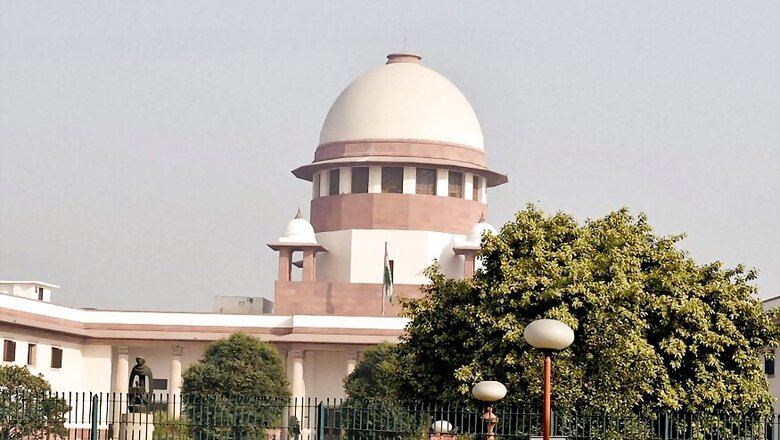
views
New Delhi: Even as it laid down a standardised formula to compensate victims of motor accidents, the Supreme Court reduced monetary relief towards funeral expenses, loss of consortium and loss of care and guidance for minor children.
A five-judge Constitution Bench, presided over by Chief Justice of India Dipak Misra, brought down the amount fixed by a SC judgment in 2013 (Rajesh & Others Vs Rajbir Singh & Others). Other judges on the bench included Justices AK Sikri, AM Khanwilkar, DY Chandrachud and Ashok Bhushan.
The 2013 judgment granted Rs 25,000 towards funeral expenses, Rs 1 lakh as loss of consortium and another Rs 1 lakh towards loss of care and guidance for minor children.
The three-judge bench judgment had held that the courts, by loss of consortium, "make an attempt to compensate the loss of spouse’s affection, comfort, solace, companionship, society, assistance, protection, care and sexual relations during the future years."
But the five-judge Constitution Bench overruled it.
It reduced damages under all the three heads: funeral expenses is brought down from Rs 25,000 to Rs 15,000; loss of consortium from Rs 1 lakh to Rs 40,000 and loss of estate from Rs 1 lakh to Rs 15,000.
Cumulatively, the larger bench has now reduced the compensation by Rs 1.55 lakh that could be paid to the family of a person killed in a road mishap.
According to the Constitution Bench, what they have fixed now are "reasonable sums" under the conventional heads and that the previous numbers had to be revised on certain "acceptable principle".
The judgment, however, does not mention in details which principles were being applied to reduce the compensation under these three heads, four years after the top court had leaned towards the interest of the family left behind by a victim.
The larger bench has instead provided for enhancing the amount under these heads by a meager 10 per cent after every three years on the reduced sums.
Interestingly, the question referred to the Constitution Bench was not about provisions under these heads but to examine if the courts need to account for future prospects of a deceased person who did not have a permanent job.
On this aspect, the Bench has ruled that compensation will have to be paid to the family of the deceased after accounting for his future prospects irrespective of the fact whether he had a permanent job or he was self-employed. A higher rate of compensation has been provided in cases where the deceased had a permanent job.



















Comments
0 comment